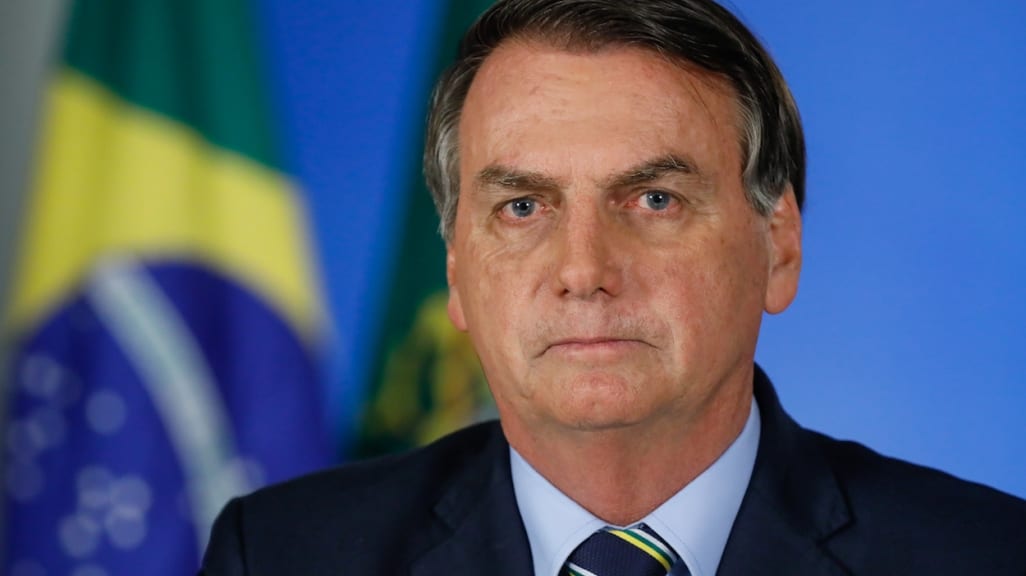(S&P Global Platts) Rio de Janeiro — Brazilian President Jair Bolsonaro once again warned of changes at state-led Petrobras in a move that raised the specter of renewed government interference at the company that could lead to changes in its policy for pricing transportation fuels.
“We could change the pricing policy there,” Bolsonaro said April 7.
Bolsonaro nominated former Army General Joaquim Silva e Luna to be Petrobras’ new CEO in February, following the president’s trend of naming former military officials to top spots, in a move that is expected to give Bolsonaro a greater voice in company decisions. Bolsonaro, a former Army captain, considers former military officers more loyal to his policies.
Silva e Luna cleared Petrobras’ internal governance requirements and is expected to be approved by shareholders during an extraordinary meeting scheduled for April 12.
Bolsonaro’s comments underscored concerns made by investors and market analysts that Brazil was poised for a return to government meddling at the company in a repeat of the losses suffered in 2011-2014. During that period, the Workers’ Party-led government prohibited Petrobras from passing along higher international oil prices along to consumers at the pump. The policy cost Petrobras billions of dollars in lost profits, analysts estimated at the time.
Petrobras implemented a new pricing policy in 2016 that committed the company to keeping domestic fuel prices at parity with international imports. The policy is important because it maintains arbitrage windows open for third-party importers, which are typically responsible for about 25% of Brazil’s diesel consumption and about 15% of gasoline demand.
The import-parity policy has been the source of public and government outrage at the company, especially since January.
Bolsonaro led criticism of Petrobras by government officials, trade groups and labor unions for passing the recent surge in oil prices to consumers by raising diesel and gasoline prices in the first quarter. The latest point of contention surrounded an increase of 39% to natural gas prices paid by local distributors, which was triggered by a complicated formula that includes foreign-exchange rates, international oil prices and domestic inflation indicators.
“This is inadmissible. What contracts are these? What deals are these?,” Bolsonaro said. He also criticized the timing of the adjustments, which Petrobras makes on a quarterly basis. The increases go into effect May 1, when a two-month federal tax holiday on domestic diesel prices also expires.
Battle for support
Bolsonaro has been battling to maintain flagging support for his administration, which has been crushed by its lack of a coordinated response to the world’s second-deadliest coronavirus outbreak. He has railed against social-distancing measures, changed health ministers several times and failed to secure necessary vaccine supplies from overseas. Brazil is now poised to surpass the US death toll by mid-2021, according to several estimates.
The discord between Bolsonaro and Petrobras started in January, when outgoing Petrobras CEO Roberto Castello Branco said an oversupply in freight capacity and not rising diesel prices was to blame for independent truckers’ woes ahead of a walkout by the group. The comments incensed truckers, who went on strike Feb. 1.
While the strike failed to gain momentum because of the pandemic, it rattled Bolsonaro. Independent truckers were a key support group for Bolsonaro in the 2018 elections. Bolsonaro supported truckers during a 10-day walkout in May-June 2018 that was also related to high diesel prices, with the walkout causing food, fuel and medicine shortages across Brazil.
Castello Branco was then fired in February after Bolsonaro warned of consequences for the company’s policies.
Bolsonaro, meanwhile, also faces new challenges by an old face in Brazilian politics: former President Luiz Inacio Lula da Silva. Affectionately as Lula, he has had his rights to run for political office reinstated by a recent Supreme Court ruling that undercut corruption-related charges against him.
Lula has so far declined to officially declare as a candidate, but his relentless criticism of Bolsonaro’s policies and response to the pandemic is expected to push the current president to adopt more-populist positions, a trend that started in 2020 as Bolsonaro’s approval ratings plummeted.
Bolsonaro also encountered pushback from state governors and Congress, which failed to reach a deal to reduce the ICMS state tax on manufactured goods that accounts for about 14% of the price for a liter of diesel. Bolsonaro wanted Congress to approve a fixed monetary value rather than a percentage for the ICMS nationwide, but the measure failed to generate enough support. The president is now calling on governors to make the change, which is a hard sell for states already struggling with pandemic-related revenue losses.
States are currently free to set a 12%-25% rate for the ICMS, which is a key source of tax revenue.



